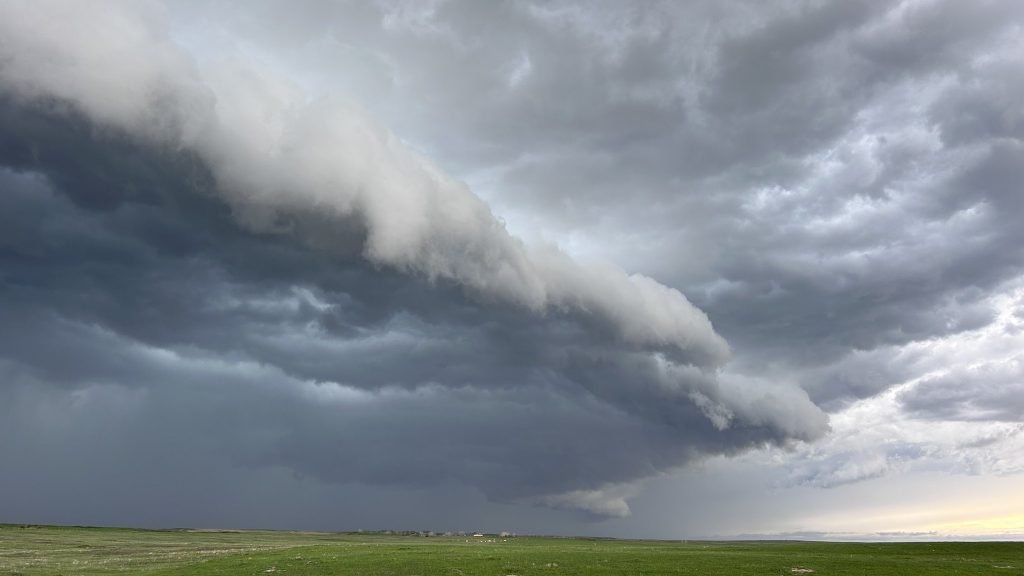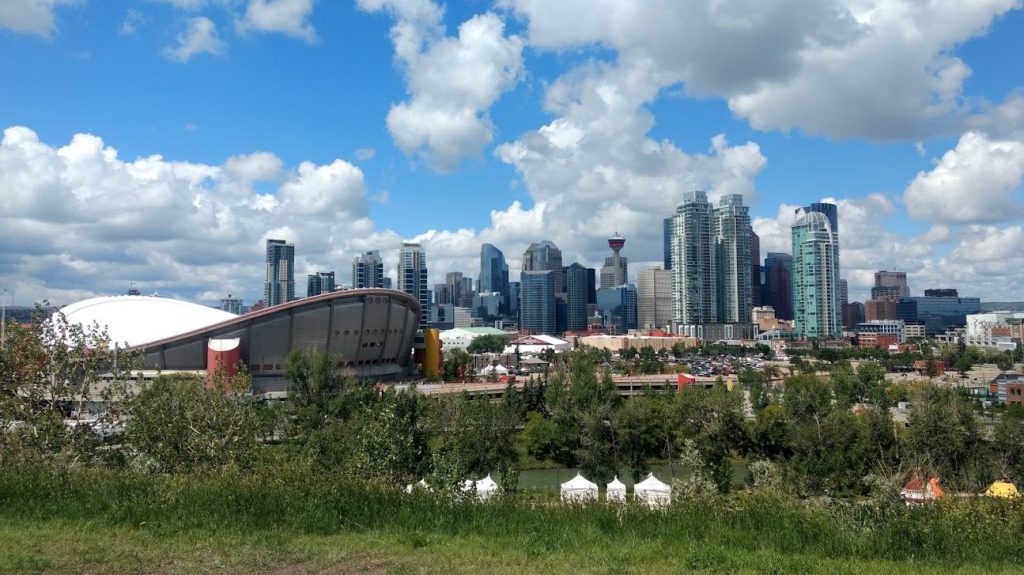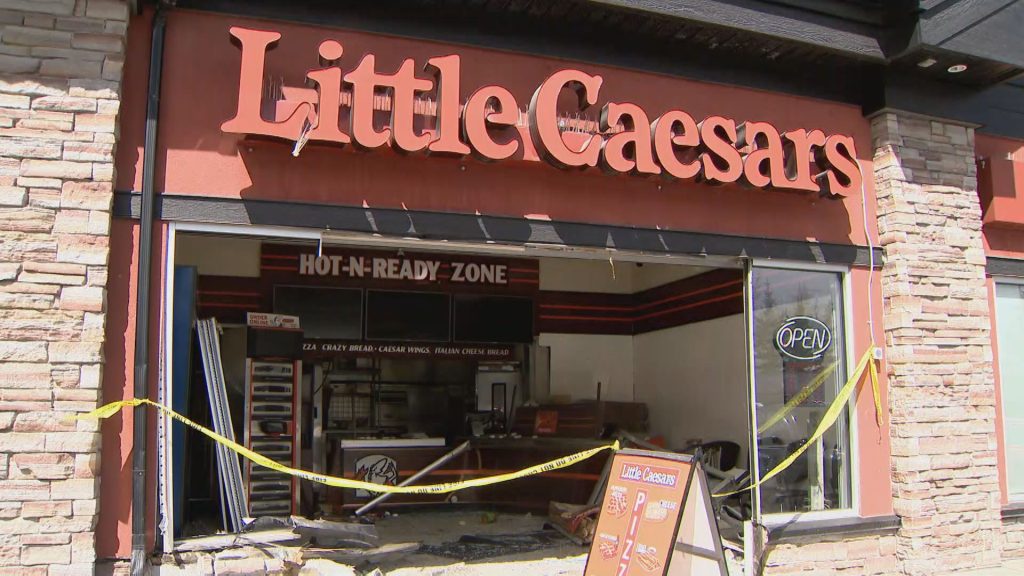No more half measures: Health experts call for more restrictions in Alberta
Posted Apr 7, 2021 11:29 am.
Last Updated Apr 7, 2021 7:12 pm.
CALGARY (660 NEWS) — After the Alberta government rolled back to step one in the COVID-19 reopening plan on Tuesday, a group of health experts joined together the next day and said this is not enough.
The province is facing a daunting third wave of the virus, with variants of concern leading the way in more exponential growth.
Members of the Calgary and Area Medical Staff Society (CAMSS) and the Edmonton Zone Medical Staff Association (EZMSA) joined together for a virtual panel, shedding more light on the situation the province is in and the steps needed to ensure it does not get worse.
“It is my sincere hope that the recommended actions coming out of this morning’s review of the data and modelling will be combined with our fellow Albertans’ sacrifices and ongoing perseverance in such a manner as to bend the curve,” said CAMSS President Dr. Scott Beach.
Several charts detailed the current situation, especially in Calgary where the majority of active cases have been reported. Variants such as the B.1.1.7 strain from the United Kingdom are making up a large share of the cases now, with Alberta holding over 40 per cent of Canada’s overall variant case count.
https://twitter.com/Tommy_Slick/status/1379834531247583237
“The variant is known to cause more serious disease. Not only does it cause disease faster, which means that slope is closer to straight up, but it also means, percentage-wise, the pressure on ICUs is going to happen faster,” said Dr. James Talbot, co-chair of the Strategic COVID-19 Pandemic Committee of the EZMSA.
Infectious disease expert Dr. Craig Jenne said the other factor that needs to be considered is the spread of yet another variant, the P.1 strain originating from Brazil which is said to be even more infectious than B.1.1.7.
“Other provinces have moved much quicker and much more restrictive with fewer infectious individuals in the community. In Alberta, we have more active virus than any other province.”
Speaking further on variants, Edmonton emergency physician Dr. Shazma Malthani said we are on the way to mirror what is happening in Ontario with health care capacity being stretched to the limits and they already have to be very careful in Alberta due to the massive increase in variants.
“Previously in the second and the first wave, we were able to cohort COVID patients together in the same room. So, we could have anywhere from one to four patients — all COVID-positive — in the same room. However, now with the variants of concern becoming more of an issue, we can no longer do that because we can’t have someone with the wild-type COVID and one of the variants of concern cohorting to the same room,” she said. “That basically effectively reduces our hospital capacity.”
Further on the hospital setting, Dr. Malthani said they are experiencing more burnout among staff with people taking days off to cope with the strain and this is all causing more delays and shortages for patients.
The growth in the positivity rate and overall rate of transmission are troubling, to say the least, and there is a distinct lack of optimism among the group that the current restrictions in place will play a significant role in bending the curve downward.
“The restrictions the government announced yesterday are a good thing, they’re going to potentially slow the rise and buy us some time,” said Dr. Talbot. “It’s not enough to bring the numbers down, they’ll rise more slowly but they’re not going to come down. So we have to look, as individuals, as leaders, as government to what could be done differently.”
Dr. Malthani added that one puzzling choice in the latest announcement is the fact that outdoor dining will still be permitted.
“We have already seen multiple examples of patios being overcrowded over the last several weeks,” she said. “We have also heard from (Chief Medical Officer of Health) Dr. Hinshaw that there have been outbreaks and transmission of variants of concern in outdoor settings, including restaurant patios.”
She suspects that since people are already not following household rules and rules around too many people at tables, we will see more overcrowding and more transmission in restaurant settings.
Dr. Malgorzata Gasperowicz, a developmental biologist with the Faculty of Nursing at the University of Calgary, gave more information on the calls for a stricter lockdown. She said there could be real potential for cases to hit a flat zero if serious moves were made. At the very least, there should be a return to measures seen last spring in order to get us more on the right track.
https://twitter.com/Tommy_Slick/status/1379838069302386688
“What was observed in previous waves, it could take ten days to two or three weeks just to bend the curve,” she said. “But bending the curve is not the end point, we need to get the cases down. Recently I did the calculation, if we had the New Zealand or Australia type lockdown, then in ten to 12 weeks we could drive the cases to zero and basically be in a safe spot and follow up with vaccinations.”
Vaccinations will always be key, the experts agreed. However, there’s some question about how many people need to be vaccinated in order to reach herd immunity.
Dr. Gasperowicz said that number is largely irrelevant and theoretical, and the goal has to be just vaccinating as many people as possible and bringing cases down to a much lower level.
Another strategy the experts call for is increased enforcement ability, as to dispel the feelings that some people can get away with disobeying the restrictions.
RELATED: AHS closes GraceLife church near Edmonton
“When you enforce them, you send the message — including to the groups that are doing the right thing — that you’re serious about whatever your policy is,” said Dr. Talbot. “If people aren’t following the regulations and they’re not being enforced, you’re giving a financial reward to the people who decide not to follow the rules. Albertans hate that message.”
Moving ahead, the message is clear from the group that they want to continue advocating for more changes in the policies surrounding COVID-19 in Alberta. Dr. Malthani noted that these positions are by no means new, and it feels like their advice is falling on deaf ears. In the end, it will end up lengthening the impact we feel from the virus.
“Experts, health care workers, scientists across the province have been asking for the province at various times to enact stronger measures,” she said. “The longer we wait to institute these restrictions, the longer that lockdown time is going to be because our starting point is going to be much higher.”
Dr. Noel Gibney said we have to get more serious about the approach, especially if we do clamour for a return to the days before the pandemic and in the words of Premier Kenney, have the best summer in Alberta history.
“Continuing to do things in half and quarter measures means that we’re going to have more people in this wave get sick, potentially die, go to ICU,” he said. “But also, it’s going to take us much longer to actually get to the point of actually getting back to normal again.”










